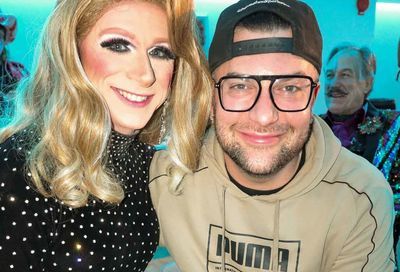Churches drop lawsuit against Massachusetts transgender law
Plaintiffs objected to erroneous inclusion of "house of worship" in list of public accommodations

Four Massachusetts churches that were suing the Commonwealth of Massachusetts over what they felt was a lack of religious protections in the state’s new transgender nondiscrimination law have dropped their lawsuit, reports The Boston Globe.
In a statement, supporters of the churches said they dropped the lawsuit after state officials were prompted to “admit that the First Amendment protects a church’s freedom to operate consistently with its faith.” But the office of Massachusetts Attorney General Maura Healey says the lawsuit was never necessary, as the law does not infringe on the churches’ First Amendment rights
The churches had been represented by Alliance Defending Freedom, an socially conservative organization that has consistently challenged pro-LGBT laws throughout the country, often claiming the laws violate people’s religious freedom. With ADF’s help, the churches argued that the law interferes with the churches’ right to “express their religious beliefs and to use their building facilities in a manner consistent with those beliefs.” According to the lawsuit, even “activities the churches undertake that do not contain overt religious inculcation are religious in nature because they are motivated by the churches’ religious mission.”
Alliance Defending Freedom said its clients were voluntarily dismissing the lawsuit only after Commonwealth officials revised their official Gender Identity Guidance and website language, removing the phrase “house of worship” from a list of entities that could be considered a public accommodation. The organization will hold a press conference at 1 p.m. on Wednesday to discuss the status of the lawsuit.
Emily Snyder, a spokeswoman for Healey’s office noted that if a religious facility hosts a “public, secular function,” it may still qualify as a place of public accommodation, and thus, for that type of use, would be subject to the nondiscrimination law. That interpretation of the law may prove to be a sticking point that conservative groups may wish to challenge in the future.
Snyder also contended that the law never threatened the religious exemptions that churches and other religious facilities currently enjoy. The Commonwealth’s website removed the reference to a “house of worship” in order to clarify the law and ensure it is consistent with the state’s other nondiscrimination laws.
As signed into law by Gov. Charlie Baker (R) in July, the law prohibits discrimination against people in employment, housing and public accommodations based on their gender identity. It also explicitly allows transgender people to use the bathroom that best comports with their gender identity. The law is already facing a separate challenge at the ballot box in 2018, when voters will determine whether to allow the law to stand or repeal it.
Support Metro Weekly’s Journalism
These are challenging times for news organizations. And yet it’s crucial we stay active and provide vital resources and information to both our local readers and the world. So won’t you please take a moment and consider supporting Metro Weekly with a membership? For as little as $5 a month, you can help ensure Metro Weekly magazine and MetroWeekly.com remain free, viable resources as we provide the best, most diverse, culturally-resonant LGBTQ coverage in both the D.C. region and around the world. Memberships come with exclusive perks and discounts, your own personal digital delivery of each week’s magazine (and an archive), access to our Member's Lounge when it launches this fall, and exclusive members-only items like Metro Weekly Membership Mugs and Tote Bags! Check out all our membership levels here and please join us today!
























You must be logged in to post a comment.